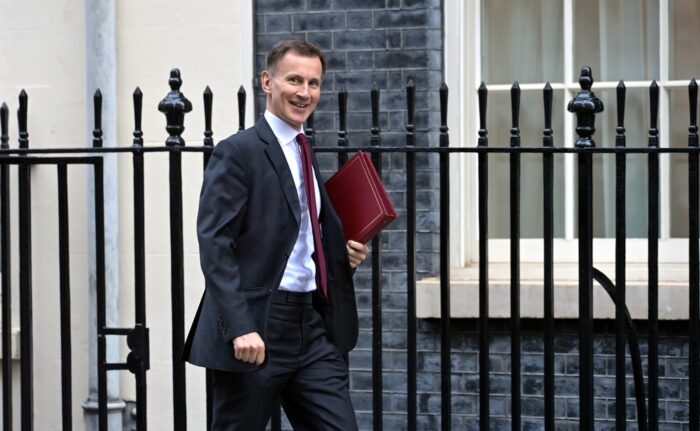Chancellor Hunt has announced a 2 per cent cut in National Insurance Contributions (NIC), reducing the rate from 10 per cent to 8 per cent starting from April 6th, with self-employed NIC cut from 8 per cent to 6 per cent.
The proposed cuts offers the government cost advantages compared to reducing income tax, as a 2p cut from income tax would cost £14bn while a 2p reduction in NIC would cost £9bn.
In his Budget speech, Hunt stated that the NIC cuts would mean an additional £450 annually for the average employee and £350 for someone self-employed. With the Autumn reductions factored in, 27 million employees would experience an average take-home pay increase of £900 a year, while 2 million self-employed individuals would see a tax cut averaging £650.
He highlighted that these changes aim to simplify the system, promote fairness, and stimulate economic growth by rewarding work. Additionally, Hunt mentioned that the Office for Budget Responsibility (OBR) predicts that, when combined with the Autumn reduction, the NIC cuts would lead to the equivalent of 200,000 more people in work, filling one in five vacancies, and adding 0.4 per cent to GDP and 0.4 per cent of GDP per capita.
He said: “This is the second fiscal event where we’ve reduced employee and self-employed National Insurance we’ve cut it by 1/3 in 6 months without increasing borrowing and without cutting spending on public services which means the average earner in the UK now has the lowest effective personal tax rate since 1975. Their effective taxes are now lower than in America France Germany or any G7 country because Conservatives believe that making work pay is of the most fundamental importance because we believe that the double taxation of work is unfair.
“Our long-term ambition is to end this unfairness when it is responsible when it can be achieved without increasing borrowing when it can be delivered without compromising high-quality public services we will continue to cut national insurance as we have done today so we truly make work pay.”
Meanwhile, the pension industry is warning that the cuts could undermine employee savings and pensions. Its benefits are limited as it applies only to earned income, excluding pensions, savings, and investments like property and so many voters would not benefit from this tax cut.
Hargreaves Lansdown head of personal finance Sarah Coles says: “The move also suffers from the fact that National Insurance was cut in January – so this simply offers more of the same. It’s also clear that it’s not a widely understood tax, so people may not appreciate the impact on their income – and may worry that it could affect their state pension entitlement.”
Hymans Robertson cautions that proposed cuts to National Insurance Contributions (NIC) may erode employee savings and pension contributions. Despite increasing take-home pay, reductions in NIC directly oppose efforts to bolster workplace pensions. Calculations reveal that for every £100 sacrificed into a pension by basic rate taxpayers, costs to employees rise incrementally with NIC cuts. Employers could save £13.80 on pay sacrificed for pensions. Hymans Robertson urges employers to consider directing NIC savings into employees’ pension funds to mitigate adverse effects and ensure long-term financial security.
Hymans Robertson partner Susan Waites says: “A cut in employee National Insurance Contributions (NIC) would further erode the savings an employee makes by sacrificing pay for pension contributions versus the savings their employer makes. Although the increase in take home pay would outweigh the increase in the cost of pension contributions, this is still cuts across Government intentions and industry efforts to incentivise employees to pay much more into their workplace pensions.”
“Some employers choose to pay some or all of their NIC saving into the employee’s pension. We would encourage those that don’t to consider doing that if NIC is cut again.”
Aegon pensions director Steven Cameron says: “The further 2p cut in NI after an earlier 2p cut in January will be a welcome boost to take-home pay for millions across the UK, but it calls into serious question the approach to funding the state pension.
“There’s no magic money pot to pay state pensions – they’re funded by the NI of today’s workers. While employer NI contributions remain unchanged, having cut employee NI from 12 per cent to 8 per cent and self-employed NI from 10 per cent to 6 per cent, there is now far less money from NI to pay state pensions. The Treasury needs to confirm how they intend to plug the gap and if this will rely on a transfer from broader tax receipts.”
